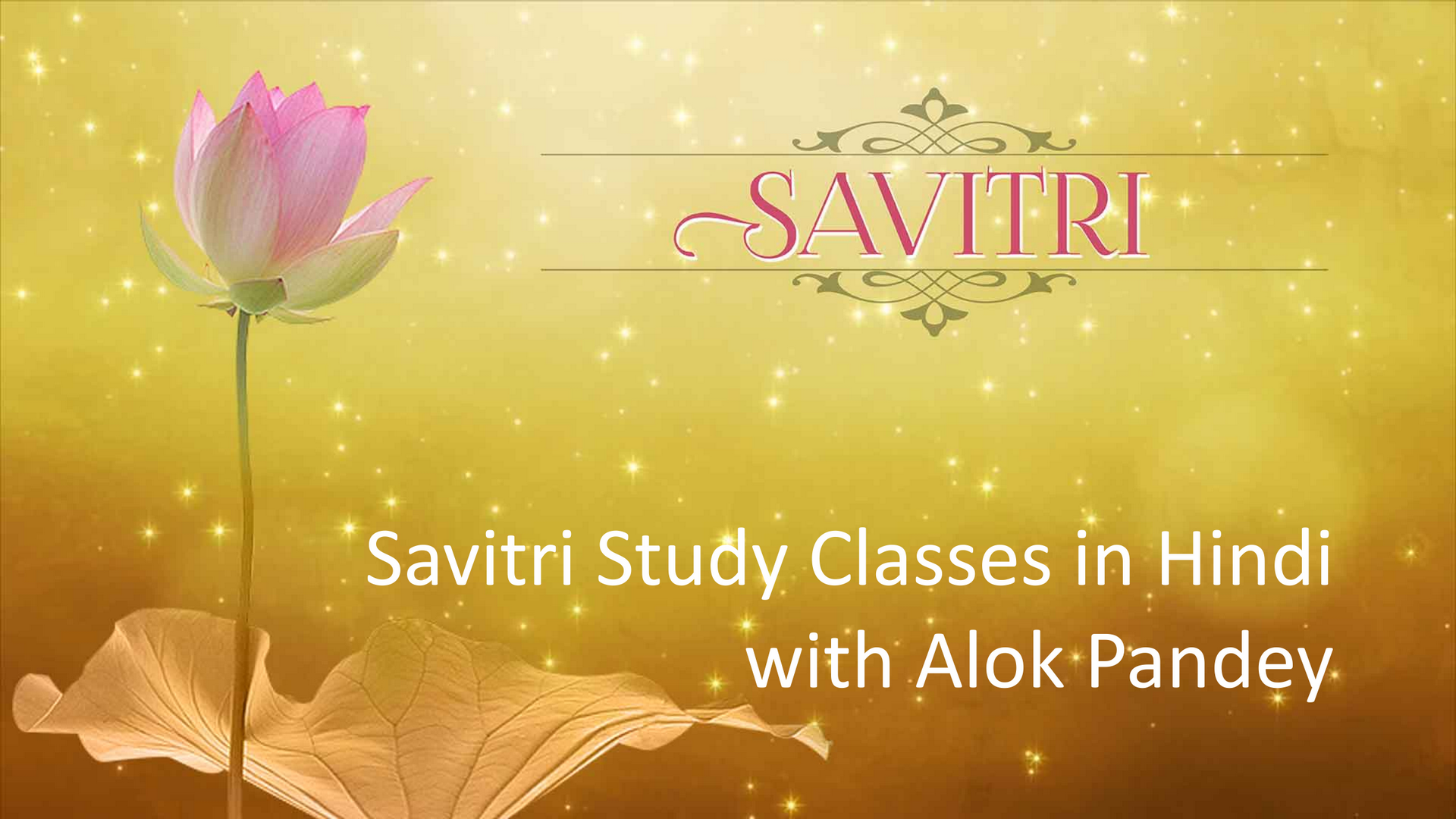Savitri Class in Hindi with Alok Pandey
Book Nine: The Book of Eternal Night, Canto One: Towards the Black Void
Death reminds Savitri not to hold her husband back with the power of her heart as he would suffer in his passing. Savitri releases the chord of her heart-strings and Death draws the soul of Satyavan to take him through the dark night towards an end that ever begins again.
His shape was nothingness made real, his limbs
Were monuments of transience and beneath
Brows of unwearying calm large godlike lids
Silent beheld the writhing serpent, life.Unmoved their timeless wide unchanging gaze
Had seen the unprofitable cycles pass,
Survived the passing of unnumbered stars
And sheltered still the same immutable orbs.The two opposed each other with their eyes,
Woman and universal god: around her,
Piling their void unbearable loneliness
Upon her mighty uncompanioned soul,
Many inhuman solitudes came close.Vacant eternities forbidding hope
Laid upon her their huge and lifeless look,
And to her ears, silencing earthly sounds,
A sad and formidable voice arose
Which seemed the whole adverse world’s. “Unclasp”, it cried,
“Thy passionate influence and relax, O slave
Of Nature, changing tool of changeless Law,
Who vainly writh’st rebellion to my yoke,
Thy elemental grasp; weep and forget.
Entomb thy passion in its living grave.
Leave now the once-loved spirit’s abandoned robe:
Pass lonely back to thy vain life on earth.”It ceased, she moved not, and it spoke again,
Lowering its mighty key to human chords,—
Yet a dread cry behind the uttered sounds,
Echoing all sadness and immortal scorn,
Moaned like a hunger of far wandering waves.“Wilt thou for ever keep thy passionate hold,
Thyself a creature doomed like him to pass,
Denying his soul death’s calm and silent rest?
Relax thy grasp; this body is earth’s and thine,
His spirit now belongs to a greater power.
Woman, thy husband suffers.” Savitri
Drew back her heart’s force that clasped his body still
Where from her lap renounced on the smooth grass
Softly it lay, as often before in sleep
When from their couch she rose in the white dawn
Called by her daily tasks: now too, as if called,
She rose and stood gathered in lonely strength,
Like one who drops his mantle for a race
And waits the signal, motionlessly swift.
She knew not to what course: her spirit above
On the crypt-summit of her secret form
Like one left sentinel on a mountain crest,
A fiery-footed splendour puissant-winged,
Watched flaming-silent, with her voiceless soul
Like a still sail upon a windless sea.White passionless it rode, an anchored might,
Waiting what far-ridged impulse should arise
Out of the eternal depths and cast its surge.Then Death the king leaned boundless down, as leans
Night over tired lands, when evening pales
And fading gleams break down the horizon’s walls,
Nor yet the dusk grows mystic with the moon.The dim and awful godhead rose erect
From his brief stooping to his touch on earth,
And, like a dream that wakes out of a dream,
Forsaking the poor mould of that dead clay,
Another luminous Satyavan arose,
Starting upright from the recumbent earth
As if someone over viewless borders stepped
Emerging on the edge of unseen worlds.In the earth’s day the silent marvel stood
Between the mortal woman and the god.Such seemed he as if one departed came
Wearing the light of a celestial shape
Splendidly alien to the mortal air.[Savitri: 574 – 576]
(line breaks added to emphasize separate movements)




About Savitri | B1C1-09 Advent of the Divine Mother (p.4)